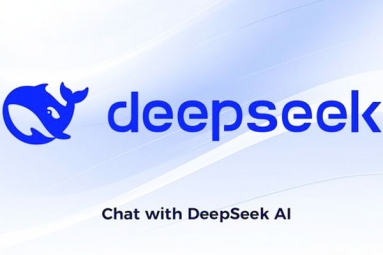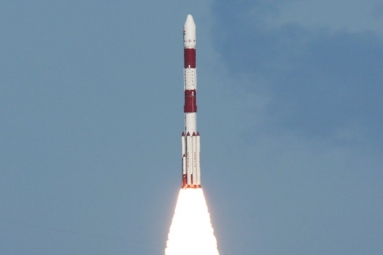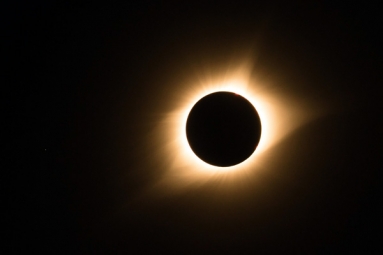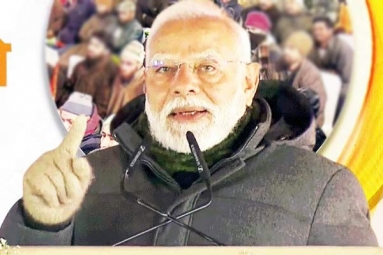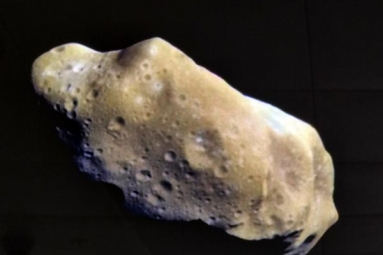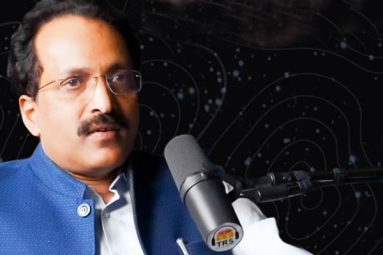
India made its major space diplomacy push today, when ISRO launched GSLV-F09 (Geosynchronous Satellite Launch Vehicle) carrying the GSAT-9 or the “South Asian” satellite at 4:57 p.m. (IST) from Sriharikota, Andhra Pradesh.
The launch of the rocket, which Prime Minister Narendra Modi termed as a priceless gift to the South Asia was smooth.
The satellite has been launched with an objective to provide different communication applications in Ku-band with coverage over South Asian countries.
The GSLV-F09 is a three stage rocket, which is 49 meters tall and weights around 150 tons. The 1st state is fired with solid fuel, the 2nd with liquid fuel and the 3rd is the cryogenic engine.
"I congratulate the team of scientists who worked hard for the successful launch of the South Asia Satellite. We are very proud of them," PM Modi has tweeted.
This is what it means for India and South Asia:
I. Data from the satellite will be shared with Nepal, Bhutan, Maldives, Bangladesh and Sri Lanka. It was also offered to Pakistan, which turned it down.
II. At least one transponder of this satellite will be available to the participating countries, which will help them connect with each other. In other words, the satellite will help India gain a footprint that extends all over South Asia. Not just that, this 'gift' is a first such move from any country in this region.
III. The participating nations anticipate a Rs 10,000 crore ($1.5 billion) benefit from the satellite's 12-year lifespan.
IV. Each country has to develop its own ground infrastructure, though India is willing to extend assistance and know-how.
V. The satellite also has the capability to provide secure hot lines among the participating nations in addition, since the region is highly prone to earthquakes, cyclones, floods, tsunamis, it may help in providing critical communication links in times of disasters.
VI. The South Asia Satellite is India's plan to counter China's growing influence on its neighbors. But in the 21st-century Asian space race, China already has the first mover advantage.
VII. PM Modi had, after taking office in 2014, asked scientists at ISRO to develop a SAARC satellite as a gift dedicated to neighboring countries.
ISRO launched a record number of satellite in February
AMandeep



